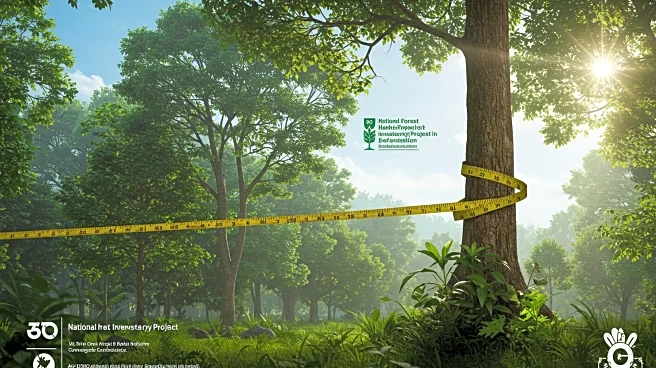What's Happening?
Haiti has initiated the National Forest Inventory Project, spearheaded by the Directorate of Forests and Renewable Energy in collaboration with the Ministry of Agriculture and Natural Resources and the National Center for Geospatial Information. This project, supported by the Food and Agriculture Organization of the United Nations, aims to update technical data on Haiti's forest conditions and propose sustainable recovery strategies. Agronomist Joseph Emmanuel Philippe, Director General of the Ministry of the Environment, highlighted the importance of understanding timber demand and supply chains in the context of agriculture and land fragmentation. He emphasized the urgent need for this inventory to mitigate disasters and promote growth and poverty reduction by protecting watersheds, mangroves, and agroforestry systems.
Why It's Important?
The National Forest Inventory Project is crucial for addressing Haiti's severe deforestation issues, which are exacerbated by human activities and climate change. The initiative aims to provide baseline data for effective government response and results-based management. By improving the legal and regulatory framework for sustainable forest management, Haiti can better protect its natural resources and reduce vulnerability to natural disasters. The project also seeks to enhance Haiti's participation in regional forest inventory programs, potentially leading to increased international support and collaboration.
What's Next?
The project will focus on completing the National Forest Inventory and updating mapping data on Haitian forests. It aims to develop a forest law and improve the legal framework for sustainable forest management. The Ministry of Environment hopes to mobilize necessary funds through financial reforms to meet its obligations. Continued collaboration with international organizations like the FAO will be essential for the project's success and for Haiti's integration into broader regional environmental initiatives.
Beyond the Headlines
The project highlights the intersection of environmental and socio-economic challenges in Haiti. Addressing deforestation is not only an ecological necessity but also a socio-economic opportunity to improve livelihoods through sustainable practices. The initiative could lead to long-term shifts in land use and property rights, fostering a more resilient and sustainable agricultural sector.










